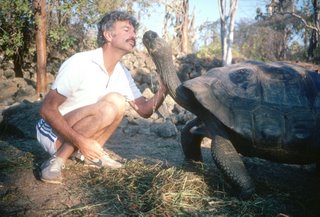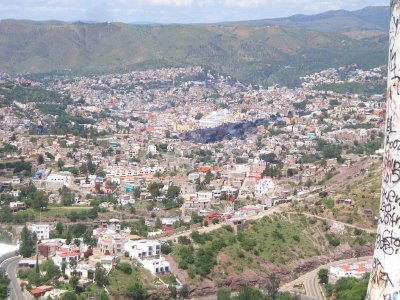I Like It...but Is It Meditation?
Just to be is a blessing. Just to live is holy. --Abraham Joshua Heshel
My life is full of meditation: I gassho before I eat. I turn the shower on ‘cold’ before I get out. I visually check the state of the tide in our bay every morning, en route to our local coffee shop. I do the New York Times crossword over my coffee. My pal Mike and I play pool at our neighborhood bar Monday nights. I take my kayak out on Humboldt Bay several times a week. I usually check the stars (or, more likely, the overcast) from the darkness of our hot tub before going to bed. These are my rituals.
Meditation? What’s all that got to do with meditation? Well, it depends how you define it. Strictly speaking, and in the soto Zen tradition that is my practice, meditation is sitting quietly on a zafu, eyes half-open, paying close attention to my breathing. It starts with a bell ringing and ends with a bell ringing. Kinhin--walking meditation--is an extension of shikintaza, “just sitting.”
But that’s what I think of as “formal” meditation, thirty minutes or so a day. Then there are the myriad openings for informal meditation, like what I mentioned above. Pool? Crosswords? Tides? Oh sure, and much more. The daily--hourly, even---opportunities for mindfulness, to stop and pay attention, to take a breath of gratitude, to appreciate the Ultimate Fact of Life: I’m here!
***
For the first 1500 years of its existence, Buddhism was mostly confined to monasteries, with strict rules, timetables and hierarchies. In contrast, Zen in America today finds the majority of its followers in the lay world, where most of us “zennies” have families, jobs and homes. Our zendos are places to visit, perhaps daily, but more likely once or twice a week, refuges, perhaps, from the “real world” of money, responsibility and regular folks who don’t know the doan from the dharma.
Along with the “layification” of Zen has come a sharp distinction, for most of us, between meditation and the rest of life. While the monks of old lived and breathed, day in day out, year in year out, in an atmosphere of stillness and contemplation—their entire lives were one unbroken meditation!--we modern zennies stop what we’re doing when we sit, and restart our everyday lives when the bell signals that time’s up. The result of this is a dichotomy: either I’m meditating (on my zafu, often in the zendo, sometimes at home); or I’m not meditating (the rest of the time).
What’s lost in this either/or distinction is the idea that meditation is what I choose to make it. Sure, I can define meditation rather narrowly, i.e. the time spent on my cushion. But if I do so, I’m elevating sitting over everyday awareness, and thus diluting the possibilities for all those other quotidian opportunities for mindfulness.
***
So what is meditation, if it’s not zazen? It’s easy to think of it in terms of the zazen process: solitary (even when you’re elbow-to-elbow with fellow sangha members), quiet, physically upright, mentally focused (in most forms), precisely timed, free of outside stimulation. That’s usually how meditation is defined, in terms of how it looks and what we do for those 30 or 40 minutes.
Another way to look at it is in terms of what it offers. I recognize that this is anathema to many meditators--for years, on being asked why I meditated, I’d say something like, “I don’t know, I just do it.” (Attainment? Oh please!) The fact remains that, consciously or unconsciously, I do things for a reason. I wasn’t born a blank slate, I came with a standard-equipment brain that constantly make decisions based on the available information. At some level, whether I’m aware of it or not, I meditate because of some perceived benefit.
I suspect it’s the same for everyone--I’ve asked fellow meditators the same question, and they all give me some reason, from “Helping me get through the day,” to “Taking me to the root of things,” to “seeing the big picture of life.”
My list is something like this:
* a sense of gratitude (Hey, I’m alive!)
* self-awareness (I’m aware that I’m aware, amazing)
* humility (Don’t take myself too seriously)
* intimation of mortality (This breath is one breath less…so don’t squander!)
* playfulness (My mind sure knows how to have fun)
* creativity (I’ve got to remember that great idea for later)
* adventure (Wonder what’s coming next?)
All these gifts usually appear to me at some time or other during zazen. But the rest of life offers so many opportunities for welcoming exactly the same gifts, so long as I’m willing to notice and accept them. It just (just!) takes the slightest mental nudge--effortless really--to transform the usually unnoticed happenings of my life into rich servings of observed experience. It helps to think of them as rituals.
Take pool. I’m a mediocre--make that bad--pool player, but I’m also lucky. Sometimes, when I’m in the flow, I’m like Paul Newman’s Fast Eddie, effortlessly potting one ball after another. At those times, I’m never more alive, never more aware of the sweetness of this life, gratitude balanced by poignancy: one day this will end. And the humility (oh! the humility) of watching the cue ball roll unerringly towards the corner pocket. It’s meditation writ large, it’s fulfilling and engaging and just plain fun.
Same with solitary kayaking, cold-showering, struggling with the crossword, gazing up at night--with all of my rituals, in fact: appreciating the enormity of it all compared to this meager body and mind, the refuge of my breath, the shock of finding myself here, the gratitude for being a player in life…all available for the noticing.
***
It’s not that there’s anything wrong with zazen--in fact, I credit zazen with helping me to pay attention to non-zazen events. It’s that when I put so much stock in formal meditation, I forget that it’s only one way of helping me see the magic that is me and that surrounds me. Redefining meditation simply as “the opportunity to notice” opens up a world of possibilities.
That is, seeing zazen as simply one more activity--no more or less meaningful as solving a cryptic clue or watching a pelican dive-bomb for his lunch or sinking the eightball--helps level the playing field between “sitting” and “the rest of life.”
And guess which of these I spend more time in?








